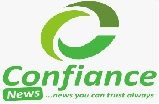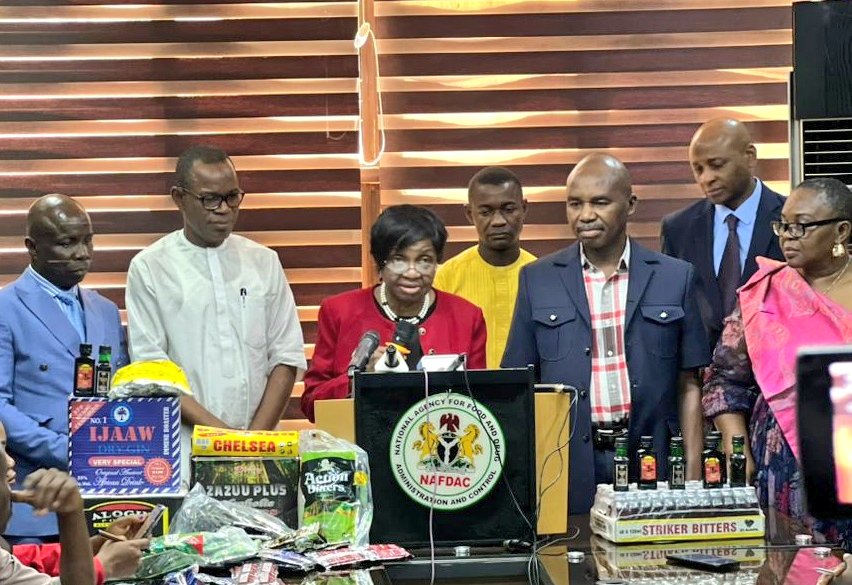The National Agency for Food and Drug Administration and Control (NAFDAC) in January 2022 stopped the registration of alcoholic beverages in sachet and small volume PET and Glass bottles below 200ml.
Confiance News gathered from a statement issued by the Director General of NAFDAC, Mojisola Adeyeye, on Monday.
This decision was based on the recommendation of a high powered committee of the Federal Ministry of Health and NAFDAC on one hand, the Federal Competition and Consumer Protection Commission (FCCPC), and the Industry represented by the Association of Food, Beverages and Tobacco Employers (AFBTE), Distillers and Blenders Association of Nigeria (DIBAN), in December 2018.
As commitment to the decision reached at the end of this Committee meeting, she said, producers of alcohol in sachets and small volume agreed to reduce the production by 5 percent with effect from 31st January 2022 while ensuring the product is completely phased out in the country by 31st January 2024.
On the part of the Agency, NAFDAC committed to ensure that the validity of renewal of already registered alcoholic products in the affected category does not exceed the year 2024.
The people who are mostly at risk of the negative effect of consumption of the banned pack sizes of alcoholic beverages are the under-aged and commercial vehicle drivers and riders. The World Health Organization has established that children who drink alcohol are more likely to: use drugs, get bad grades, suffer injury or death, engage in risky sexual activity, make bad decisions and have health problems.
The World Health Organization also stated that harmful consumption of alcohol is linked to more than 200 health conditions including infectious diseases (tuberculosis and HIV/AIDS) and non-communicable conditions (liver cirrhosis and different types of cancer). it also associated with social problems such as alcohol addiction and gender-based violence.
To curb the menace of abuse of alcohol the World Health Organization recommended some actions and strategies to Policy -Makers that have shown to be effective and cost effective, which includes: regulating the marketing of alcoholic beverages (in particular to younger people), and regulating and restricting the availability of alcohol.
The National Agency for Food and Drug Administration and Control(NAFDAC) was established by Act Cap N1 Laws of the Federation of Nigeria 2014 to regulate and control the manufacture, importation, exportation, advertisement, distribution, sale and use of food, drugs, cosmetics, medical devises, bottled water, detergent and chemicals (referred to as regulated products).
Alcoholic drinks in sachets, PET and Glass bottles are pocket-friendly and can easily be carried around, by the under-aged (including primary and secondary school children) without notice. It is easily affordable and comes handy for commercial bus drivers, keke riders, okada riders, etc who after taking them constitutes nuisance to the society.
The negative impact of the harmful consumption of alcohol which is occasioned by its being economical, easily accessible and miniature in nature, prompted NAFDAC to take the bold step of banning it, in order to save our children and to protect the health of the larger society.
The main reason for calling this Press conference is to intimate you of the Government policy of banning the importation, manufacture, distribution, sale and use of alcoholic beverages in sachets, PET and Glass bottles of 200ml and below.
As at the 31st January 2024 there is no alcoholic beverage in these categories that are registered by NAFDAC. I also want to inform you that the Agency has started enforcement actions to enforce the implementation of this policy. The window period given to manufacturers by NAFDAC to sell off all alcoholic drinks in this category elapsed on the 31st January 2024.
To this end on the first day, after the elapse of the window period, the Agency commenced nationwide enforcement actions on the 1st February 2024 to enforce the implementation of the new policy. The manufacturers and printers of labels and packaging materials were the initial targets.
“It will surprise you to know that in the course of the enforcement actions it was discovered that some manufacturers of these banned products were still in production of the banned products and still had stacks of both finished products and packaging materials of the products in their possession. This situation is of course not acceptable, and the Agency views this as flagrant disobedience to the laws of Nigeria. NAFDAC views this matter seriously and will engage all statutory means, which may include prosecution, to deal with the matter.
“I want to use this medium to ask all holders of alcohol in sachets, PET and Glass bottles, empty sachets, PET bottles, empty Glass bottles, and other packaging materials of these banned products to immediately report to the Investigation and Enforcement Directorate of NAFDAC for hand-over of same to NAFDAC for destruction, to prevent sterner measures including prosecution,” the DG said.
NAFDAC is resolutely committed to the strict implementation of the regulations and regulatory measures towards safeguarding the health of Nigerians, particularly the vulnerable youth, against the dangers of reckless consumption of alcohol.




